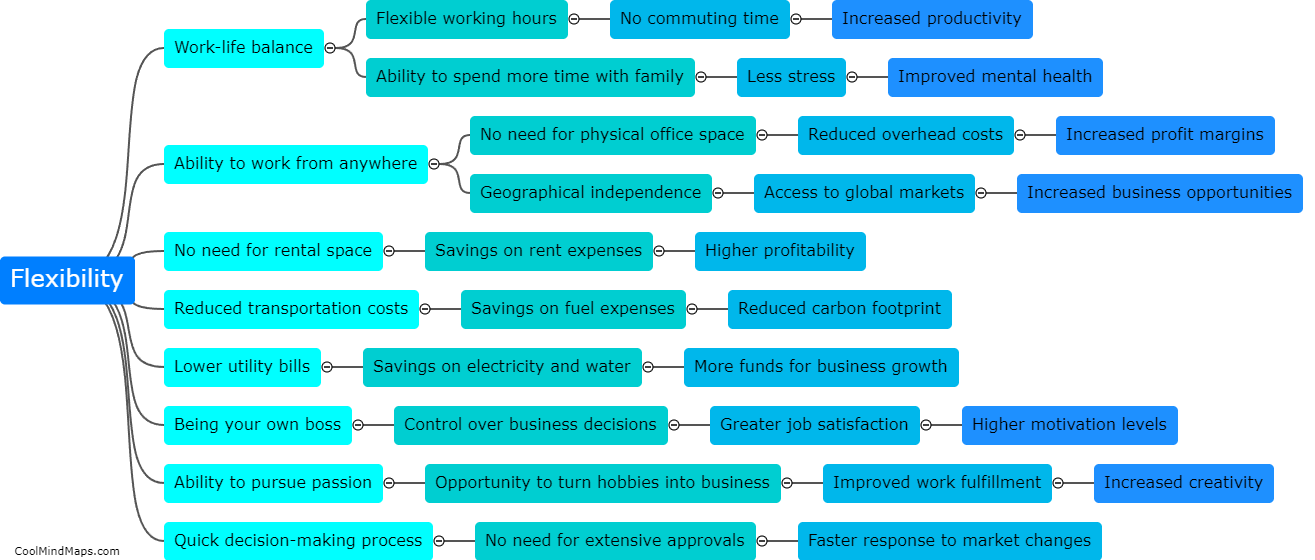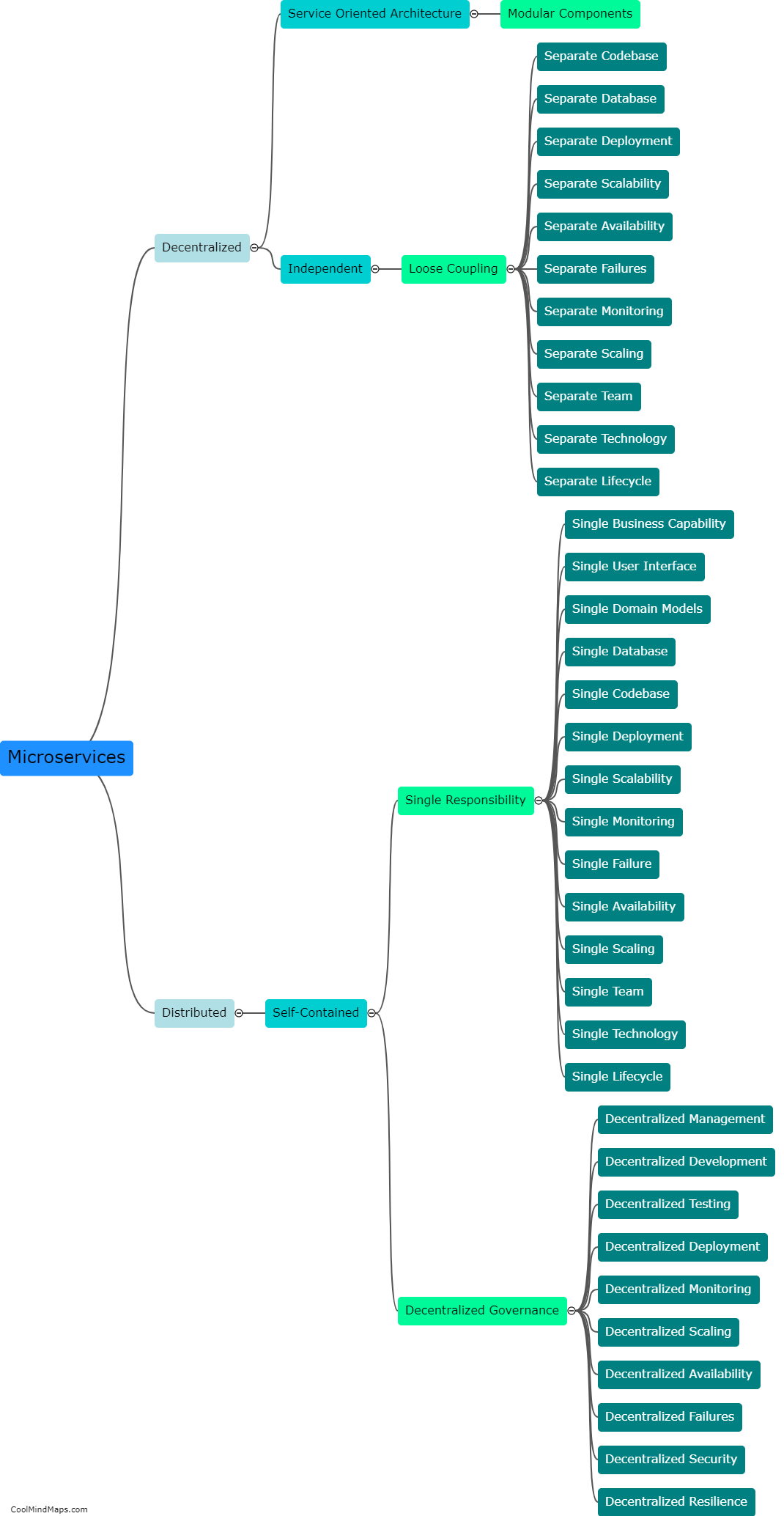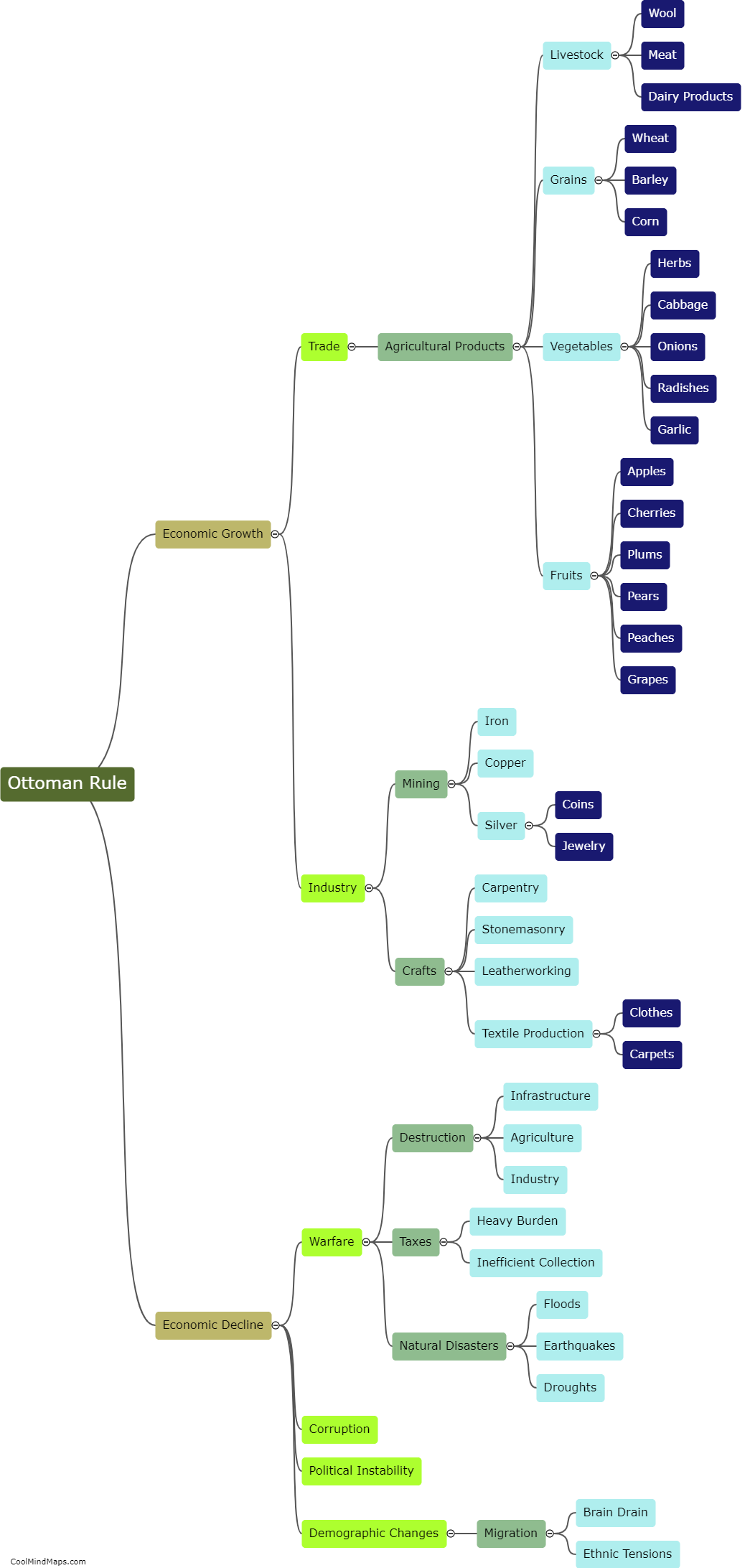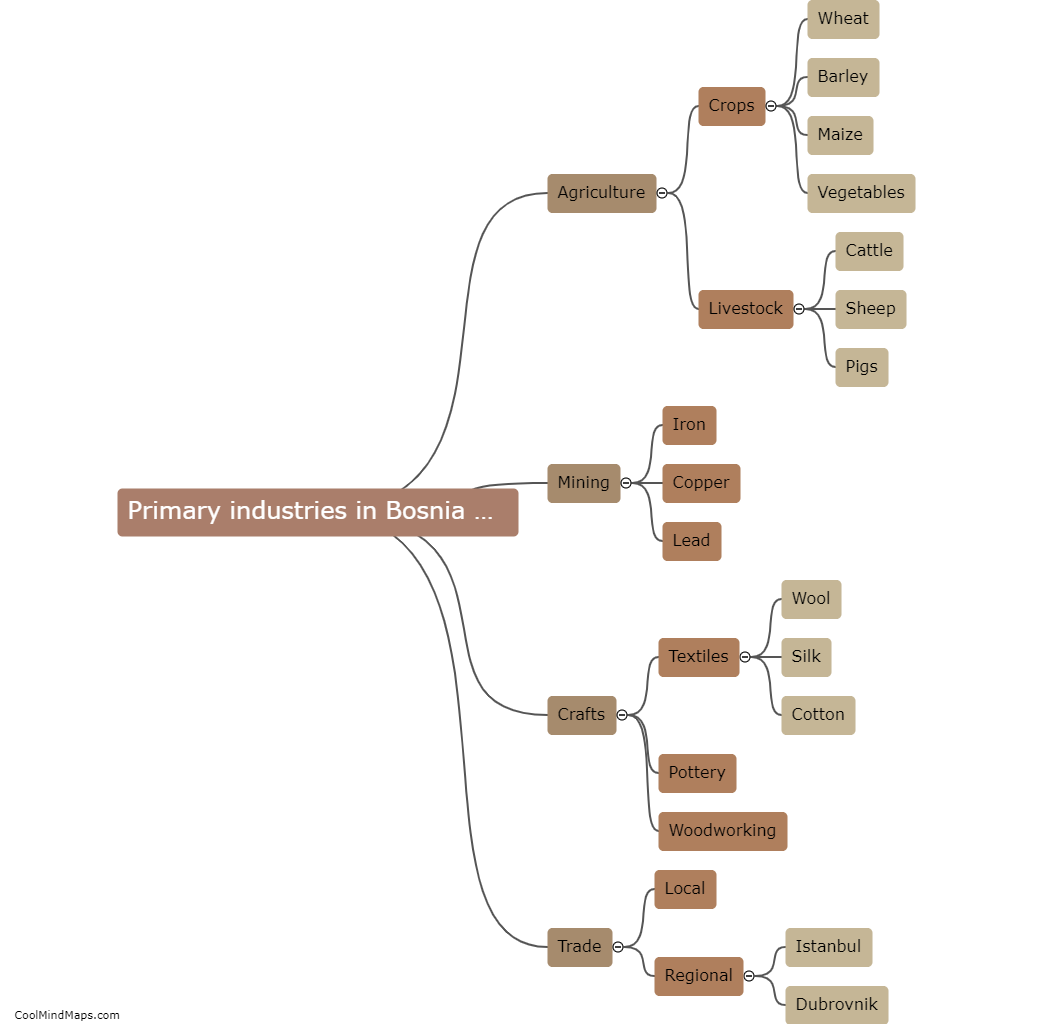How did Ottoman rule impact Bosnia's economy?
The Ottoman Empire's rule in Bosnia had major economic impacts, both positive and negative. The Ottomans brought the concept of the "timar system," which allowed for the efficient collection of taxes and the redistribution of land to loyal supporters. This led to increased agricultural productivity and a rise in urbanization. However, the Ottomans also imposed an oppressive tax system and monopolized trade, stifling the growth of industry and foreign commerce. Bosnia's economy remained primarily agrarian and rural under Ottoman rule, limiting its potential for development. Furthermore, the Ottomans' relative neglect of Bosnia as a peripheral province resulted in underinvestment in infrastructure and undermined long-term economic progress.
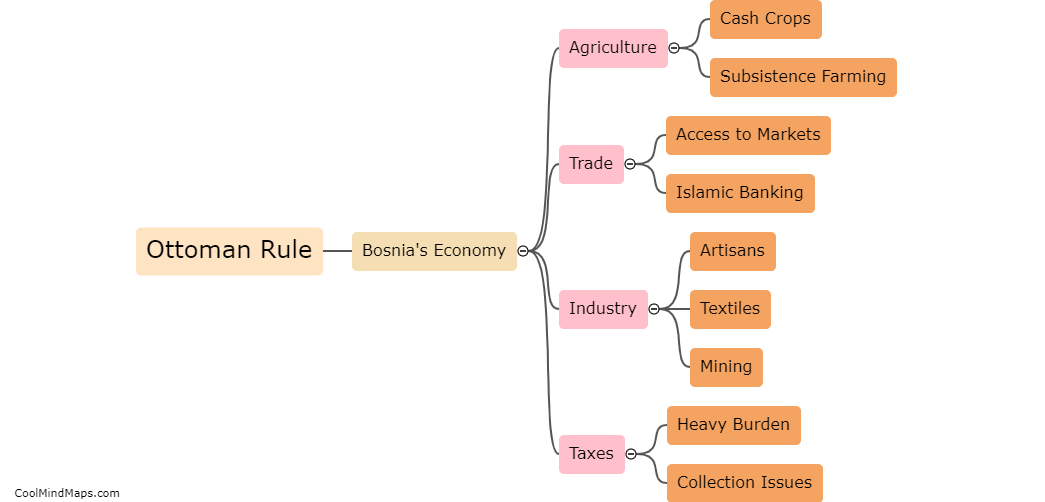
This mind map was published on 22 June 2023 and has been viewed 128 times.
